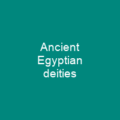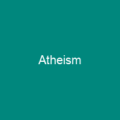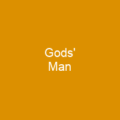What is a Deity?
A deity or god is a supernatural being considered sacred and worthy of worship due to having authority over some aspect of the universe and/or life. This concept, as old as human civilization itself, has evolved in myriad ways across cultures and time.
How Many Deities?
Religions can be categorized by how many deities they worship, with monotheistic religions accepting one deity and polytheistic religions accepting multiple deities. But what if we ask ourselves: Is there a universal truth about the number of gods that exist? Or is it simply a matter of perspective?
Monotheism vs Polytheism
Let’s delve into the heart of religious beliefs. Monotheistic belief holds that only one deity exists, often described as omnipotent, omnipresent, omniscient, omnibenevolent, and eternal. But what if we question this? Is it possible to worship multiple deities without conflicting with monotheistic principles?
Deism and Pantheism
Deism posits a creator deity who does not intervene in the world, while pantheism believes the universe is God or everything composes an all-encompassing deity. These beliefs offer alternative perspectives on the nature of divinity: Is it a personal being that interacts with us, or is it the very essence of existence itself?
Deity Across Cultures
The concept of deities varies considerably across cultures. In ancient Egypt, numerous deities were revered, each associated with natural phenomena and social aspects of life. The first written evidence dates back to the 3rd millennium BCE, suggesting that the worship of deities is as old as human civilization.
Ancient Mesopotamia
In ancient Mesopotamia, dingir (deities) were almost exclusively anthropomorphic and possessed extraordinary powers. They were thought to be immortal but a few, like Dumuzid, Geshtinanna, and Gugalanna, were said to have either died or visited the underworld. This raises an intriguing question: Can deities be mortal in some form?
Deity in Greek and Roman Mythology
The ancient Greeks revered both gods and goddesses, while Romans adopted many of these deities into their own pantheon. These deities were anthropomorphic with fantastical abilities and unique personalities, leading to the development of cults and political uses.
Christianity and Islam
Christianity is a monotheistic religion that accepts the concept of the Holy Trinity, while Islam is strictly monotheistic. Both religions have their own unique interpretations of deities: Is there one God or many? And how do these beliefs shape our understanding of the universe?
Deity in Indigenous Cultures
Inca culture believed in Viracocha as the creator deity, while Maya culture revered Kukulkan as the supreme creator deity. Polynesian people developed a theology centered on numerous deities, including Io as the supreme being. These diverse beliefs highlight the vast array of interpretations and practices surrounding deities.
Shinto and Taoism
In Shinto, deities known as kami are venerated, while Taoism includes gods and immortals divided into ‘gods’ and ‘xian.’ Xian is acquired through the cultivation of the Tao. These beliefs offer a unique perspective on divinity: Can one achieve divinity through personal development?
Deity in Modern Times
The concept of deities has evolved significantly over time, with skeptical interpretations dating back to ancient Greece. Philosophers such as Democritus and Euhemerus proposed rational explanations for the concept of deities. Sigmund Freud suggested that God concepts are a projection of one’s father. These theories challenge our traditional views: Are deities simply projections of human emotions?
Conclusion
The concept of deities is as complex and varied as humanity itself. From the ancient Egyptians to modern-day religions, the idea of a deity continues to shape our understanding of the world around us. Whether you believe in one or many, the question remains: What does it mean to worship a deity?

You want to know more about Gods?
This page is based on the article Gods published in Wikipedia (retrieved on March 11, 2025) and was automatically summarized using artificial intelligence.







